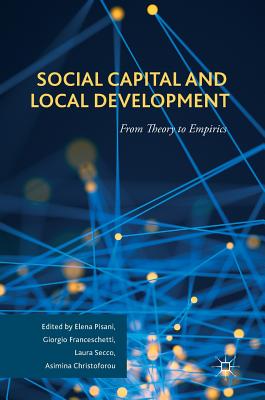
Social Capital and Local Development:From Theory to Empirics
社会资本与地方发展:从理论到实证
工业经济学
¥
2223.75
售 价:
¥
1779.00
优惠
平台大促 低至8折优惠
发货周期:外国库房发货,通常付款后3-5周到货
作 者
出 版 社
出版时间
2017年11月10日
装 帧
精装
页 码
516
语 种
英文
综合评分
暂无评分
- 图书详情
- 目次
- 买家须知
- 书评(0)
- 权威书评(0)
图书简介
This book addresses the role of social capital in promoting rural and local development. The recent financial and economic crises have exposed the European Union (EU) to an increased risk of social exclusion and poverty, which are now at the heart of its economic, employment and social agenda with explicit reference to rural and marginal areas (Europe 2020). The authors’ work from the notion that rural development is not imposed from the ‘outside’, but depends also on endogenous factors, namely local cultural and ecological amenities, eco-system services, and economic links with urban areas which expand rural opportunities for innovation, competitiveness, employment and sustainable development. Social capital is of paramount importance because it helps build networks and trusting relations among local stakeholders in the public and private spheres, and supporting the enhancement of governance of natural resources in rural areas
本书暂无推荐
本书暂无推荐












